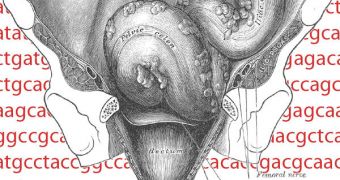A collaboration of researchers announces the completion of a comprehensive analysis on the nature of the colon cancer genome. The work reveals a number of new potential targets for future therapies. Even more important, experts found that colon and rectal cancers are one and the same.
Statistically speaking, in the United States, colon cancer is the second-leading cause of cancer-related deaths. Therefore, finding a way to address this condition is a public healthcare issue, and many teams are working towards this goal.
The new discoveries should make it easier for investigators to proceed with developing new drugs, especially when taking into account the fact that many of the newly-identified potential targets were never suspected of being involved in this disease's progression until now.
Details of the research were published in the July 19 issue of the top journal Nature. The Harvard Medical School (HMS) Paul C. Cabot professor of genetics, Raju Kucherlapati, was a corresponding author of the study paper.
“Nobody has ever done analysis of this large a set of tumors. The largest previous analysis involved fewer than 20 samples. This one has more than 250. As a result, we have really a much better understanding of this serious and widespread disease,” he explains.
Overall, the research effort included 12 research institutions and 150+ experts, which formed the Cancer Genome Atlas Network consortium. The enterprise was put together by the National Human Genome Research Institute and the National Cancer Institute.
In addition to discovering two genes that may constitute future drug targets, the team also identified several new markers that can be used to indicate the presence of aggressive tumors. Furthermore, experts identified a new role for the regulator gene MYC.
“This finding of the true genetic nature of colon and rectal cancers is an important achievement in our quest to understand the foundations of this disease,” explains the director of the US National Institutes of Health (NIH), Francis Collins.
“The data and knowledge gained here have the potential to change the way we diagnose and treat certain cancers,” he concludes.

 14 DAY TRIAL //
14 DAY TRIAL //